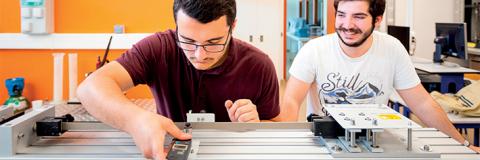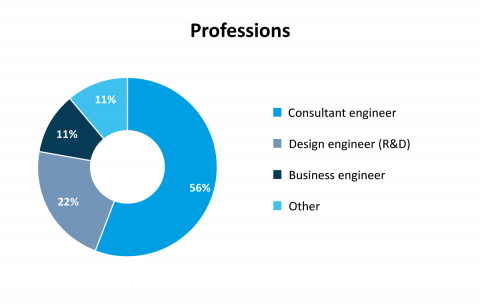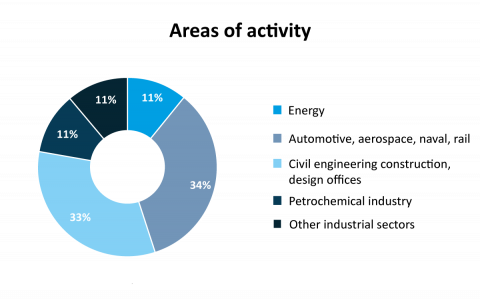
Materials: Mechanics and Energy
THE MATERIALS MAJOR HAS CHANGED ITS NAME TO MATERIALS: MECHANICS AND ENERGY!
INTRODUCTION
In the heart of matter
Present in all aspects of everyday life, materials contribute to the improvement of our daily lives and are at the centre of technological developments related to sustainable development, energy, health, information and communication technology.
The gained skills during the cursus involve a wide range of materials: polymers, composites, metallic alloys and ceramics intended for the engineering mechanics, physical metallurgy, transport, aeronautics, energy and microelectronics.
Engineers who have studied Materials: Mechanics and Energy at Polytech Paris-Saclay are able to put into practice their theoretical, technical and applicative knowledge of the materials science and engineering in order not only to optimise the development, manufacturing and characterisation processes, but also to ensure the implementation and coordination of the operations necessary for a company's quality approach.
Materials engineers work in all branches of industry. Their skills are needed as soon as an object is designed and produced, be it a vehicle, a mobile phone, a hip prosthesis, a sailboard or a nuclear reactor...
Découvrez les vidéos du projet "caractérisation des matériaux composites" réalisées par les élèves de la spécialité matériaux : mécanique et énergie
Key points of Polytech Paris-Saclay
With a strong foundation in the research capabilities of Université Paris-Saclay, this education cursus enables future engineers to learn to predict and simulate the physical and mechanical behaviour of materials. As a result, students acquire a broad technical and scientific background which places them at the heart of technological innovation and enables them to develop the materials of the future and meet the challenges of sustainable development, such as rising raw material costs, energy issues and environmental issues, etc.
Core curriculum
The ‘Electronics and Robotic Systems’, " ‘Computer Science’, " Materials : Mechanics and Energy’ and ‘Photonics and Optronic Systems’courses include a common core designed to help future engineers better understand the requirements and processes of companies. Throughout the course, business is studied from several angles, including economics, finance, marketing, communication, R&D, management and languages, etc.
Ask for the programme!
Going further
There are many options for double-degrees or additional training available to our students in the form of Master’s courses at the University, as well as ENS Paris-Saclay, the École CentraleSupélec, ENSTA, IOGS and IAE de Paris.
You can also continue cursus for a PhD degree after Engineering degree (CIFRE thesis or other) - in particular those who have obtained a double Engineer-Master degree.
Students can benefit from the many international cooperation links by the school and Université Paris-Saclay and enjoy international travel (minimum of three months required during the course) either for periods of study abroad or to carry out international internship outside of France.
IN SUMMARY
Skills
Mechanics of materials
Composite materials and polymers
Nuclear materials
Sustainable development
Functional materials
Numerical finite element method
Physical metallurgy
Applications
Materials for mechanical structures (metals and alloys), metallurgy
Forming, assembly and durability of structures
Finite element modelling, computer-aided metallurgy
Polymers and composites
Materials for energy (nuclear, hydrogen) and sustainable development
Materials for photovoltaics and nanotechnologies
RNCP (National Directory of Professional Certifications)
For the engineering degree from the Ecole Polytechnique at the University of Paris XI, Materials specialisation (undergraduates): https://www.francecompetences.fr/recherche/rncp/13843/
For the engineering degree from the Ecole Polytechnique at the University of Paris XI, Materials specialisation in partnership with the ITII IDF (for students in apprenticeships and vocational training): https://www.francecompetences.fr/recherche/rncp/13916/
INTEGRATION INTO THE LABOUR MARKET

Survey of graduates at 6 months - Average over 3 years
